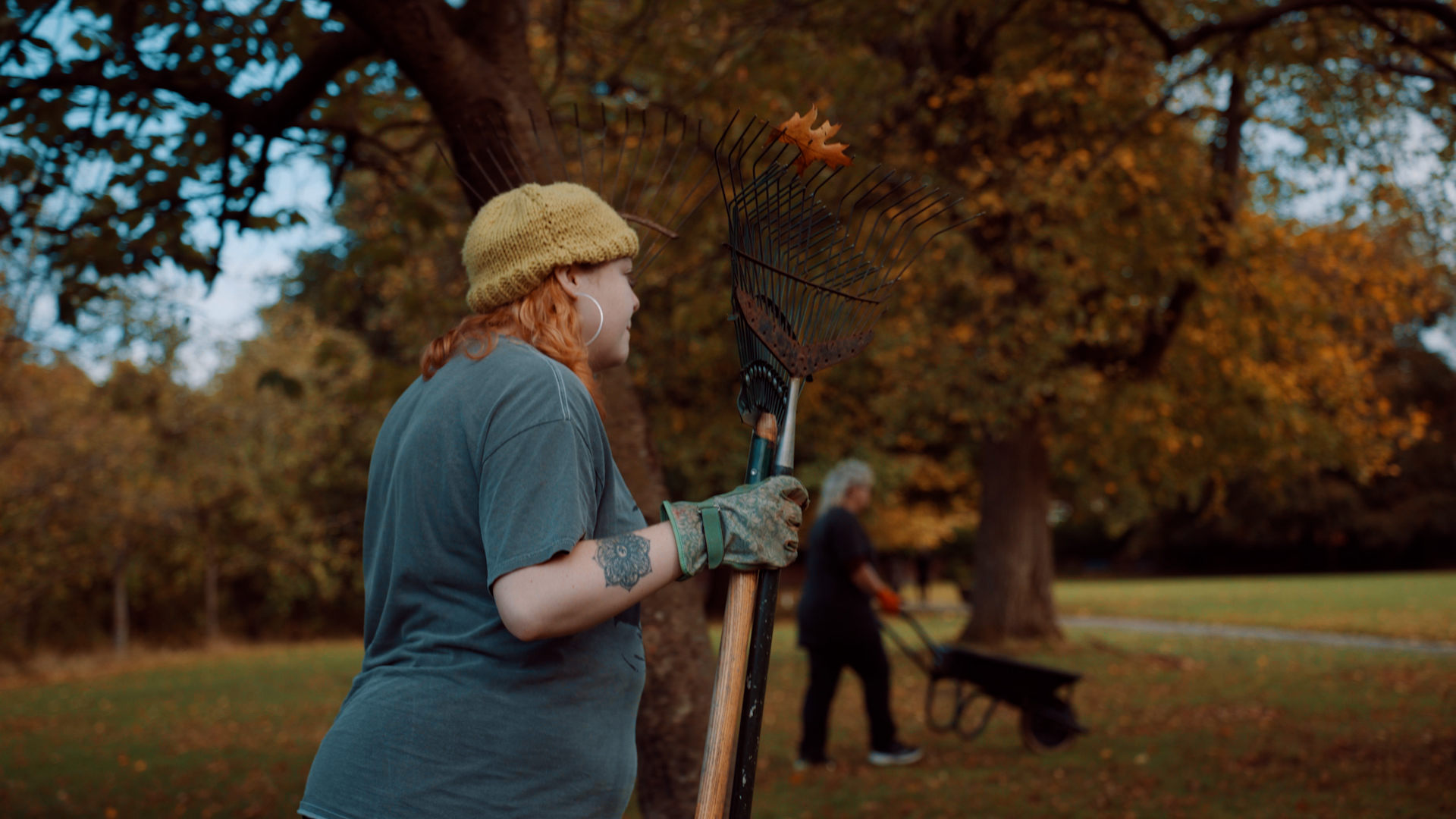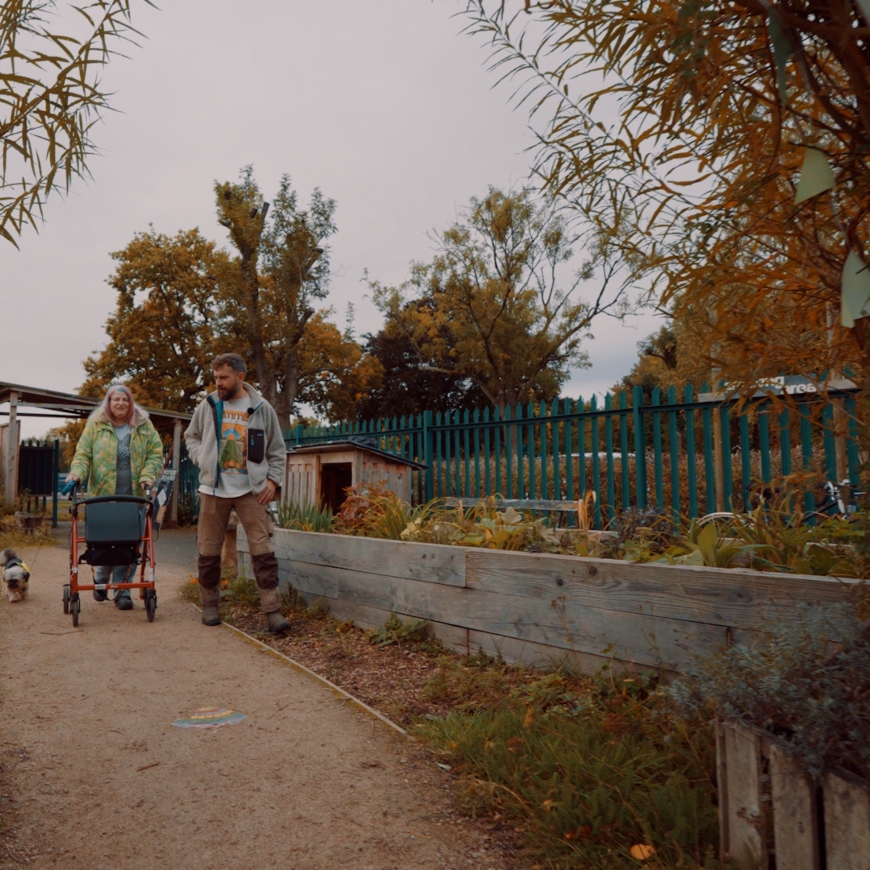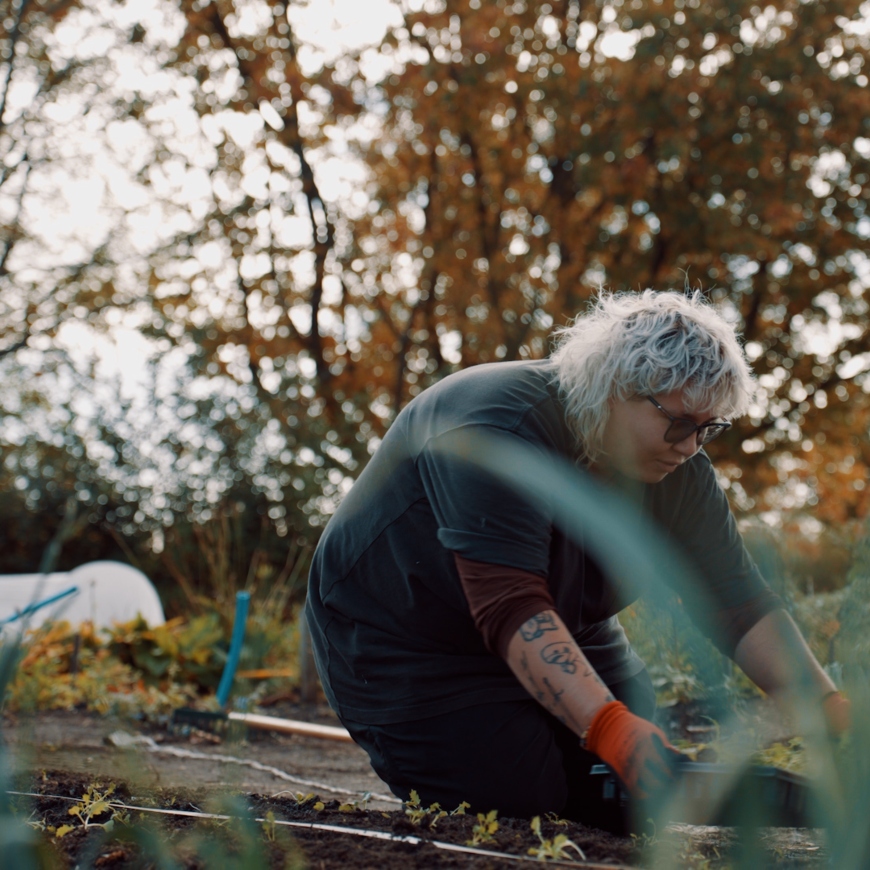
Community guide to green social prescribing
21-10-2025
Get started with...
Case study
Guidance
©National Trust Images / Jungle

21-10-2025
Get started with...
Case study
Guidance
©National Trust Images / Jungle
Green Social Prescribing (GSP) is when people are supported to take part in nature-based activities to improve their mental and physical health. Social prescribing link workers and other health professionals connect people to community groups for practical and emotional support, based on a ‘what matters to you’ conversation.
Prescribed activities share the idea that time in and connection with nature can make us feel and live better. They could include local walking schemes, community gardening projects, open water swimming or arts and cultural activities which take place outdoors.
Based on individual needs and circumstances, they may be prescribed by link workers (or trusted professionals) alongside referrals for other forms of support such as help with housing or finances.
Research shows the potential health and wellbeing benefits of nature-based activities:
Communities have a longstanding role to play in delivering these benefits. The cross-government GSP programme has been exploring what system changes are necessary to enable lasting connections between these communities and health systems, to bring the benefits of being in nature to more people. It has published a toolkit of learning from its pilot sites on how to build those connections.
Manchester Urban Diggers (MUD) make beautiful gardens in urban spaces, where people grow, cook and eat delicious, healthy food together.
With the support of like-minded organisations like Sow the City and the Greater Manchester Nature for Health network, they have been building a social and therapeutic horticulture (STH) programme over the last five years.
STH is a GSP activity where trained practitioners work with plants and people to improve an individual’s physical and psychological health, communication and thinking skills. It is different to other forms of gardening programmes as the approach is tailored to meet the needs of individuals by a practitioner.
In this video Mike Hodson, one of MUD’s founders, and programme participants talk about how they turned their hand to health in the community, to bring the healing power of nature to people who need it most.

©National Trust Images / Jungle
From starting out to training and session planning, here are MUD’s ‘seven seeds for success’ for other local organisations looking to run nature-based activities for wellbeing.
If you already offer activities that may be adapted for use by GSP, the cross-government GSP programme toolkit has further advice on relationship building and the types of conversations to seek out to help you connect into local health systems.
If you already offer nature-based activities in your programmes, that’s a great place to start.
Don’t be afraid to keep it simple, starting with the types of activities in nature that are most relevant to you, be it gardening or arts and cultural activities which take place outdoors.
With our roots in gardening, it made sense for us to focus on STH. Activities like a seed sowing session that encourages people to notice the feel of crumbly soil, or a relaxed watering session, taking time to listen to the sound of droplets meeting the earth.
You can also look at free courses to help you expand what you offer. For example, we went on a course run by Thrive, a gardening for health charity, about designing health and wellbeing sessions and working with partners. This approach has helped us grow organically, whilst staying close to our core purpose and areas of expertise.
Like any health and wellbeing role, it can sometimes be emotionally challenging for our STH programme teams. They’re all good, caring people and it’s natural to feel affected by some of the issues and experiences participants bring.
To ensure we can fully support each other, we:
There is also a team of volunteer ‘garden buddies’ who help participants to access the garden. Some of them have been through the programme themselves.
Working as part of a network could give you wider access to things like funding opportunities and application support.
Networking has benefitted our STH programme at every stage:
Consider taking referrals from a few different routes so your programme can reach a broader range of people.
Most people come to us via the self-referral form on our website. They find us through word of mouth, social media and our own marketing (e.g. newsletters).
We also take referrals from local health services such as NHS Recovery Pathways and the local GPs. Before making referrals, Social Prescribers like to see activities and systems in place to support individuals. They’ll be keen to know what types of health needs your programmes can support, and feel confident that the people delivering the programme understand that too.
Whatever their referral route, we prioritise potential participants based on how much we think our programmes can support them, not on a first-come-first-served basis, and have a waiting list to manage the flow.
We’ve built our STH programme up over five years and we’re still learning. Start small in the knowledge that there is time to grow and adapt. The more you do, the better you’ll get.
Here’s some tips to give you a head start:
Planning is always good. But our biggest learning so far is the importance of being able to recognise what people need and adapt our sessions to suit them.
Here’s a good example:
We used to take it for granted that time in green spaces was a positive experience for everyone. In practice, we found some people needed our help to overcome anxieties around spending time outdoors. Knowing this, we sometimes suggest staying in the garden as it’s enclosed and you can enter without needing to walk through the neighbouring park. Then as people become more confident, we might venture out into the local park for mindfulness and forest bathing.
Another big learning is that tea, coffee and snacks are a universal language that helps people relax, connect and share what they need.
It’s important to be completely open about what support and activities your STH programme offers. This ensures everyone involved knows what to expect and has a positive experience.
We always start with an induction to the garden and staff, explaining that they’re there to help through nature-based activities as opposed to being trained mental health practitioners or therapists.
We find it’s also motivating for people to know we can continue supporting them through our other programmes when they’re ready.
We also keep clear boundaries as the programme progresses, always listening if people want to express themselves, and always ready to signpost people to a trusted organisation if the help they need is more specialised.
Live Well is Greater Manchester’s commitment to communities, public services, voluntary, community, faith and social enterprise organisations and partners working together to ensure everyone has access to great everyday support in every neighbourhood. Jon Myint from the ICP talks about the vital role of community organisations like MUD in helping to deliver fairer healthcare in the city.
The cross-government GSP programme has been working with partners including NASP to embed green social prescribing further into communities across the UK.
Take a look at its free resource hub with evidence, toolkits and guidance. You can also join the GSP Innovation Community for networking opportunities and access to collaborative spaces to develop and share your work.
Whether you’re just starting out or looking to scale up, there’s lots of support on offer.
